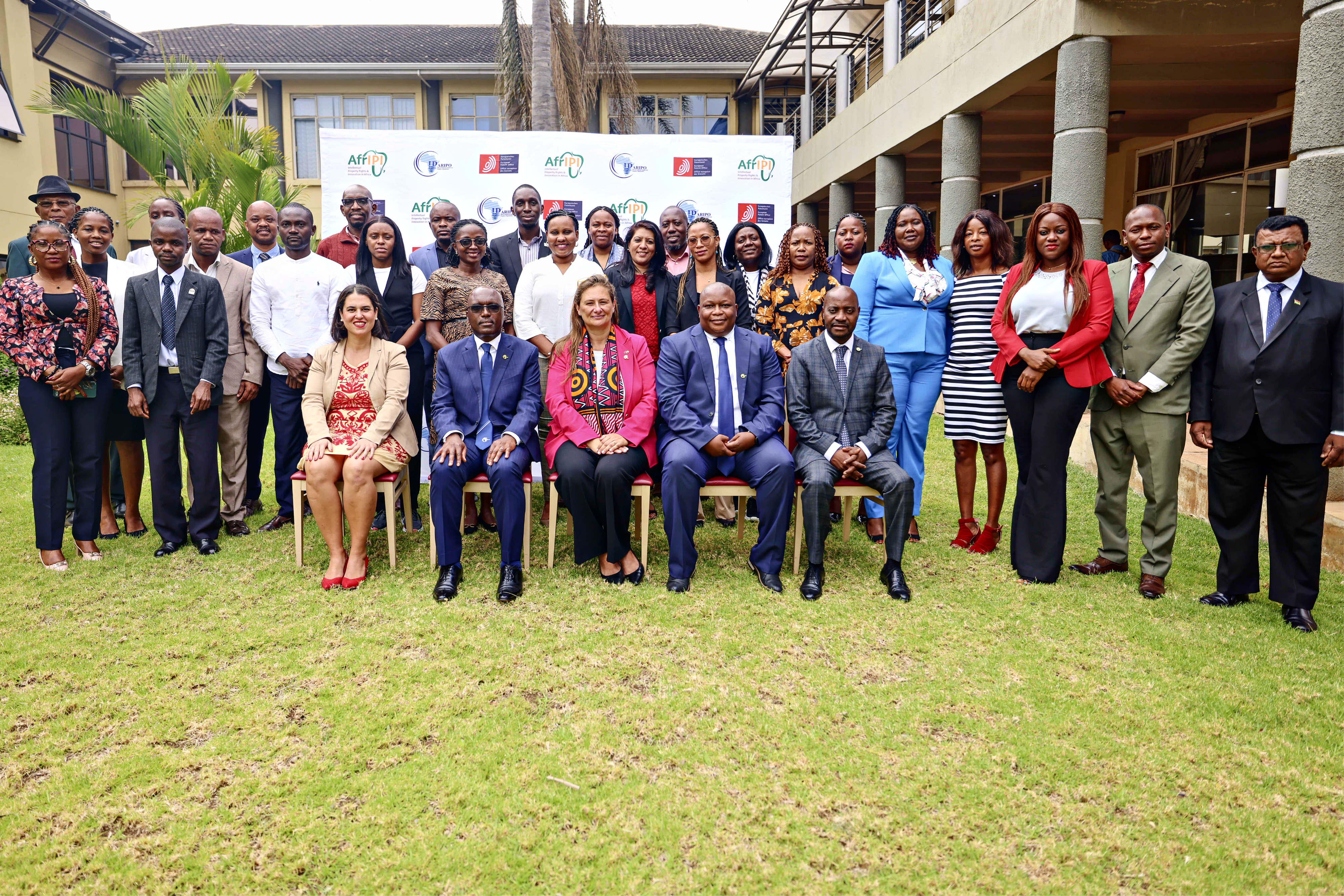ARIPO, in collaboration with the European Patent Office and the Intellectual Property Rights and Innovation in Africa (AfrIPI) hosted the ARIPO Regional Patent Examination Training (ARPET) from 16 to 25 October 2023. The training was curated to upskill participating patent examiners from ARIPO Member and Observer States and help to improve their skills, capacities, and efficiencies in conducting patent searches and handling the substantive examination of patent applications in their national patent offices in Africa.
Participants from ARIPO and Member States, Angola and Ethiopia who successfully completed Module B of the ARPET training in 2022 make up the graduating examiners who qualified for this final phase of the training. Expanding upon last year's Module B training session held in July, Modules C and D were introduced to provide further training to participants.
Statistics indicate a general shortage in patent search and examination skills in the African Region. Although empowered through national laws to provide search and examination of patent applications, most African countries are yet to fully develop the capacity, knowledge and skills to perform timely and high-quality searches and examinations of patent applications for their local constituents. ARIPO has stepped up the capacitation drive for its Member States in this regard.
Speaking during the opening session of this training, the ARIPO Director General, Mr. Bemanya Twebaze said that the aim was to raise the patent search and examination capabilities of ARIPO Member States based on Patent Cooperation Treaty (PCT) standards.
“In R&D institutions, patent searches are a necessity in the exploitation of patents both as a vehicle of protection and a source of information because patent databases contain more than 80% of all technical information worldwide, which is never published in any other form”, said DG Twebaze.
ARIPO provides search and examination capacity for its Member States in line with local, regional and international patent applications filed in the region. This activity was, therefore, premised on the fact that efficiencies in both ARIPO and its Member States could be improved if the capacity for search and examination of patents was strengthened. Moreover, Angola and Ethiopia face similar challenges and yet are showing great promise in the exponential growth of IP in Africa, as illustrated by the statistics shared by the Secretariat.
“We envisage the stimulation of more IP applications in the medium and long term. Practically, more IP applications mean more sustainable agriculture and food security for Africa; improved medicines, therapeutics and diagnostics; clean water; and general socio-economic progress. This is the value of intellectual property in the days of our lives”, he added.
In Module B of the ARPET training, the participants received residential training in Zanzibar, Tanzania, on substantive examination theoretical principles including search and examination principles, clarity, novelty, unity of invention and the identification of an inventive step in patent applications.
ARIPO’s mandate to pool resources for Member States has seen the EPO collaborating on the ARPET by providing facilitators and trainers for the program. Dr. Fernando Dos Santos and Mr. Trod Lehong were among the trainers who shared their expertise with the participants. Speaking during the opening session, the President of the EPO, Mr. Antonio Campinos announced more synergies that the EPO is prepared to explore with ARIPO and other African Organizations.
Mr. Campinos’ remarks cited that “Another positive outcome of the Agreements between the European Union and Africa has been the growing diversification of African exports. Whereas the bulk of exports from Africa to the EU historically had been composed of raw materials, in recent years, African exports have increasingly included machinery and transport equipment, manufactured goods, including textiles and agri-food products. This is a reason for an increased interest in strengthening the framework for Intellectual Property Rights protection, as these rights acquire importance when trade diversifies, and exchanges are based on products high in the value chains, where innovation is a crucial factor.”
The AfrIPI (Intellectual Property Rights and Innovation in Africa) also collaborated on the training to further enhance search and examination capacity through the ARPET programme.

